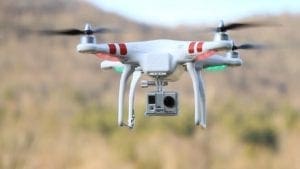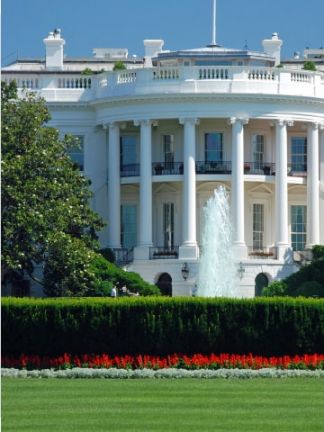California Legislators Move to Ban Warrantless Drone Surveillance

Published in Liberator Online - 3 mins - Apr 25
California Legislators Move to Ban Warrantless Drone Surveillance
This article was featured in our weekly newsletter, the Liberator Online. To receive it in your inbox, sign up here. Drones are all the rage again, for very good reasons. According to the Tenth Amendment Center, California legislators have taken an important pro-privacy stance by considering a bill that restricts warrantless drone surveillance in the Golden State. Assembly Bill 1820 would prohibit state and local law enforcement from using drones to spy on suspects without a warrant. The bill also helps to thwart federal surveillance, serving as what many like to call a nullification tool against the federal government’s intractable and unconstitutional thirst for control.
Introduced by Assemblyman Bill Quirk, a Democrat from California’s 20th district, AB 1820 unanimously passed a second Assembly committee last week. If signed into law, the piece of legislation would prohibit law enforcement from making use of drone surveillance over private property without a warrant while also establishing that, in some cases, the property owner must give officers express permission before the drone is launched. Weaponized drones could also be banned from the Golden State if AB 1820 were to pass.
While privacy advocates have reason to celebrate and hope for the best in this case, Tenth Amendment Center’s advocates are particularly excited about the bill’s impact on the federal surveillance state.
According to the organization’s blog, AB 1820 thwarts the federal government’s surveillance plans by keeping California from being tempted by the federal government’s perverse incentives.
Currently, funding for drones comes from the federal government. Once the handouts are transferred to state officials and drones are used in local investigations, information gathered by local officials is fed into fusion centers used in a federal program known as the Information Sharing Environment, which was created in 2004 as part of the country’s fruitless War on Terror. The information scored by ISE is then shared with other agencies. The fact some of this information is extracted in an unconstitutional and illegal fashion is never taken into consideration.
According to the Tenth Amendment Center, the federal government “encourages and funds a network of drones at the state and local level across the U.S.,” making the passage of this bill a step toward breaking the federal government’s influx of Californians’ personal data.
With the restrictions proposed by AB 1820, data available to the feds is limited, forcing them to attempt to get the data they need on their own. Without the resources from the states, the federal government is hit with a burdensome blow, effectively hurting the surveillance state and helping to protect your right to privacy.
While the bill is a step in the right direction, Tenth Amendment Center reports that it does allow for certain exceptions involving warrant requirements in emergency situations in which the use of an unmanned aerial vehicle could prevent immediate danger of death or injury to individuals. The bill also establishes that drones can be deployed over private properties in the event of natural disasters.
The Assembly Committee on Public Safety passed AB 1820 without a single nay while California’s Assembly Committee on Privacy and Consumer Protection passed the proposal 6-5. Now, the bill is expected to move to the Appropriations committee, where lawmakers will review the legislation.
According to the Tenth Amendment Center, California legislators have taken an important pro-privacy stance by considering a bill that restricts warrantless drone surveillance in the Golden State. Assembly Bill 1820 would prohibit state and local law enforcement from using drones to spy on suspects without a warrant. The bill also helps to thwart federal surveillance, serving as what many like to call a nullification tool against the federal government’s intractable and unconstitutional thirst for control.
Introduced by Assemblyman Bill Quirk, a Democrat from California’s 20th district, AB 1820 unanimously passed a second Assembly committee last week. If signed into law, the piece of legislation would prohibit law enforcement from making use of drone surveillance over private property without a warrant while also establishing that, in some cases, the property owner must give officers express permission before the drone is launched. Weaponized drones could also be banned from the Golden State if AB 1820 were to pass.
While privacy advocates have reason to celebrate and hope for the best in this case, Tenth Amendment Center’s advocates are particularly excited about the bill’s impact on the federal surveillance state.
According to the organization’s blog, AB 1820 thwarts the federal government’s surveillance plans by keeping California from being tempted by the federal government’s perverse incentives.
Currently, funding for drones comes from the federal government. Once the handouts are transferred to state officials and drones are used in local investigations, information gathered by local officials is fed into fusion centers used in a federal program known as the Information Sharing Environment, which was created in 2004 as part of the country’s fruitless War on Terror. The information scored by ISE is then shared with other agencies. The fact some of this information is extracted in an unconstitutional and illegal fashion is never taken into consideration.
According to the Tenth Amendment Center, the federal government “encourages and funds a network of drones at the state and local level across the U.S.,” making the passage of this bill a step toward breaking the federal government’s influx of Californians’ personal data.
With the restrictions proposed by AB 1820, data available to the feds is limited, forcing them to attempt to get the data they need on their own. Without the resources from the states, the federal government is hit with a burdensome blow, effectively hurting the surveillance state and helping to protect your right to privacy.
While the bill is a step in the right direction, Tenth Amendment Center reports that it does allow for certain exceptions involving warrant requirements in emergency situations in which the use of an unmanned aerial vehicle could prevent immediate danger of death or injury to individuals. The bill also establishes that drones can be deployed over private properties in the event of natural disasters.
The Assembly Committee on Public Safety passed AB 1820 without a single nay while California’s Assembly Committee on Privacy and Consumer Protection passed the proposal 6-5. Now, the bill is expected to move to the Appropriations committee, where lawmakers will review the legislation.

Alice
Author
Advocates for Self-Government is nonpartisan and nonprofit. We exist to help you determine your political views and to promote a free, prosperous, and self-governing society.
What do you think?
Did you find this article persuasive?
Unpersuasive
Neutral
Very Persuasive
Subscribe & Start Learning
What’s your political type? Find out right now by taking The World’s Smallest Political Quiz.

























